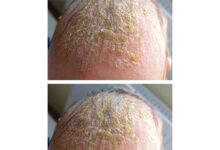Why You Should Never Chase Away This Creature If You Find One Inside Your House
Why We Should Never Chase Away House Geckos and Lizards
Certain animals possess remarkable abilities, and geckos are a prime example. With their adhesive toe pads that allow them to scale walls and ceilings, along with their impressive night vision, geckos are truly unique. However, when people spot geckos in their gardens, they often feel the urge to eliminate them quickly. Here are five reasons to reconsider that approach.
Geckos can feed on dangerous insects.

Many people think all reptiles are dangerous. However, numerous reptiles pose no threat to humans, and certain species can actually be helpful, such as common house geckos. These geckos consume insects that can be harmful, including cockroaches, moths, flies, spiders, termites, and wasps.
If geckos live in your garden, it probably means it’s an ecologically clean area.

Numerous chemicals can be harmful to geckos, so their presence in your yard is a positive indicator. It suggests that your garden is environmentally friendly. Additionally, insects can develop resistance to insecticides, which means they may stay in your garden indefinitely or return once the chemicals dissipate. Thus, a more natural approach to pest control is to allow geckos to manage the situation.
Geckos won’t eat anything from your garden, unlike birds.

These agile-tailed animals won’t touch the berries, fruits, or vegetables in your garden. This sets them apart from birds, which also help control pests but enjoy the berries and edible fruits you may be cultivating. While birds may appear more charming and less threatening, they can easily devour your entire harvest, whereas lizards can actually safeguard it.
They aren’t dangerous to humans.

Geckos may appear to have extraordinary abilities as they scurry across ceilings and produce unusual sounds at night, but they are not frightening creatures. Common house geckos are non-venomous and do not pose any danger to people, although they might bite if they feel threatened. In fact, they help by controlling pest populations both inside and outside your home.
Geckos can carry salmonella, which is easy to avoid.
Geckos, like many reptiles, can carry salmonella. They don’t transmit it by biting; instead, it comes from their droppings. If you encounter gecko feces on any surface, make sure to clean it thoroughly. Also, avoid kissing them, as well as other pets like cats and dogs.
Do you know of any other helpful animals that are usually mistreated? We’d be happy to see your comments in the section below!

